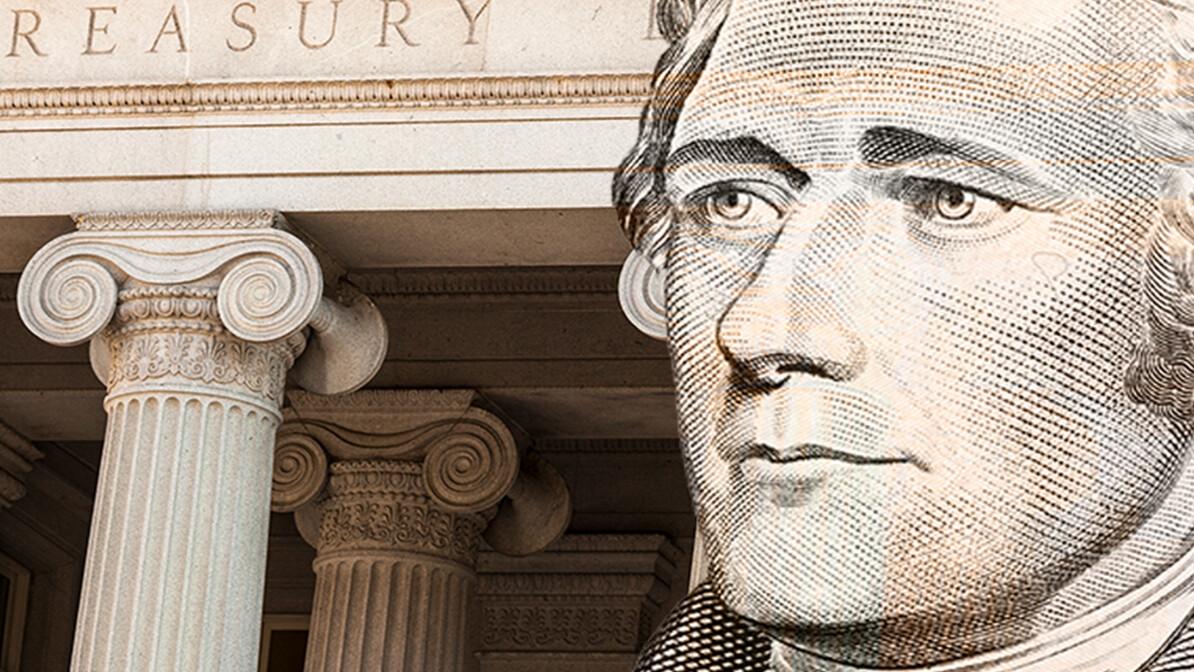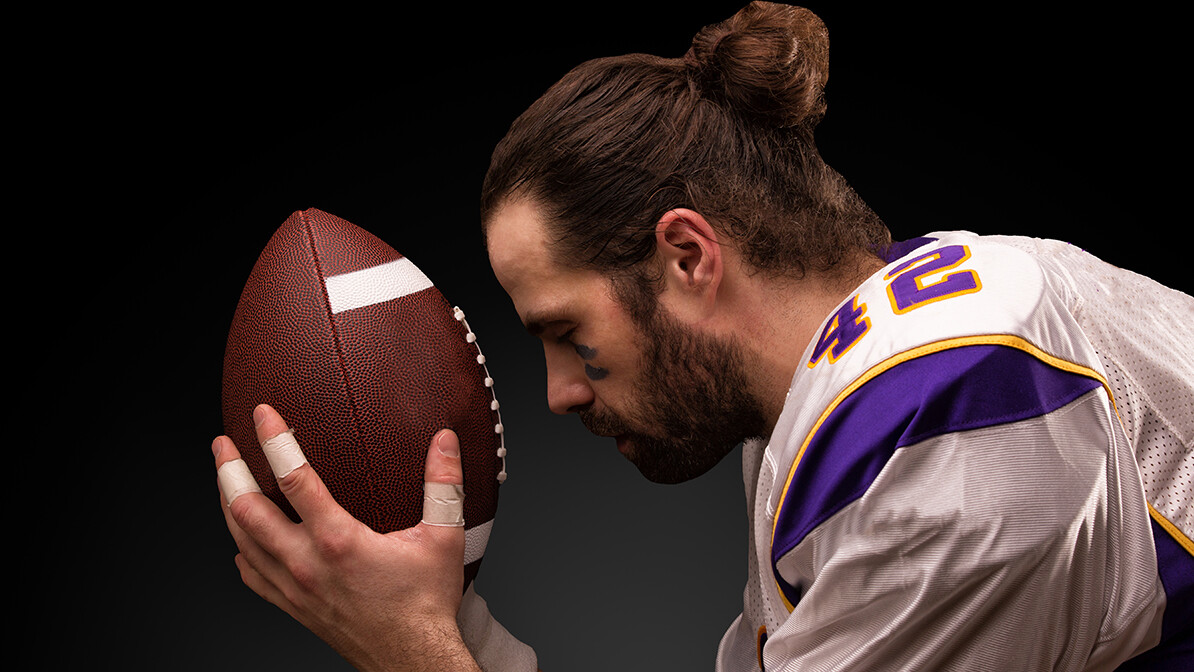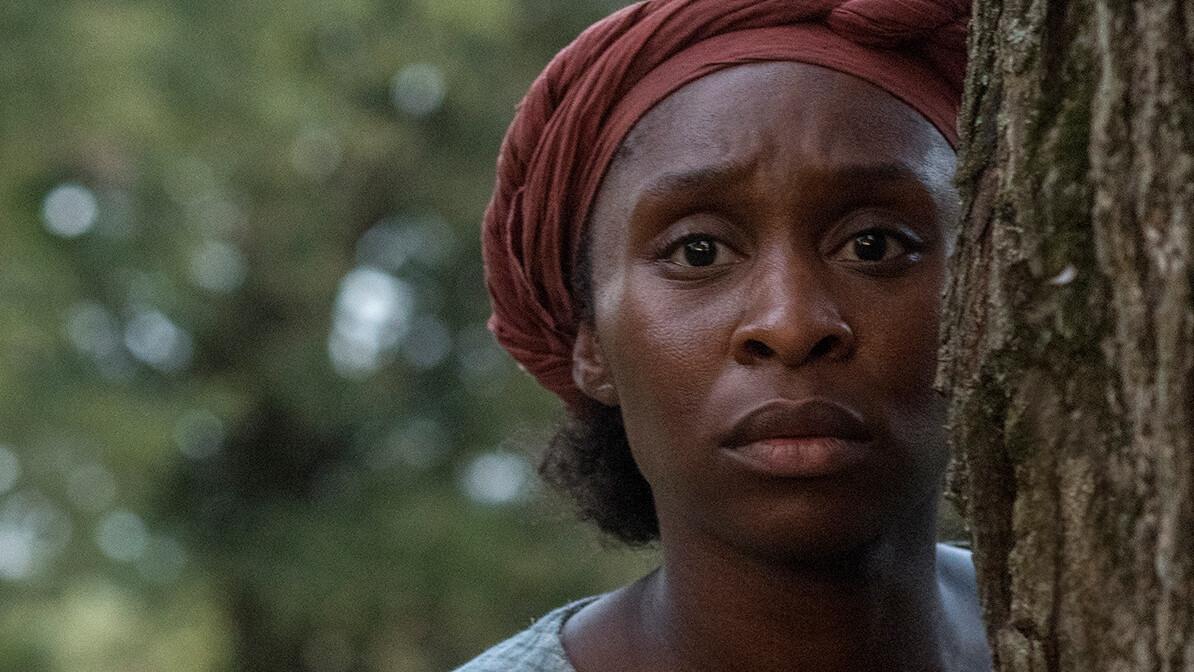- Home
- Entertainment
- God and Hamilton: Finding Spirituality in the Broadway Hit

God and Hamilton: Finding Spirituality in the Broadway Hit
CVB: So, what led you to write the book God and Hamilton: Spiritual Themes from the Life of Alexander Hamilton and the Broadway Musical He Inspired?
Kevin: I’m a musician and I play drums, guitar, and piano. I always liked musicals, but I’ve never been in one. My wife is actually involved in musical theater, so it’s in my blood and I always loved that world. So we saw Hamilton and it absolutely blew me away. It’s a brilliant musical – the music, the lyrics, and the choreography are really outstanding.
CVB: Yeah, it really has broken the mold of the Broadway musical experience.
Kevin: It’s an entirely new genre that’s never been done before on Broadway. That in itself is exciting – just to see barriers being broken and different people bringing new ideas to Broadway. But even more than feeling it’s a brilliant piece of art – which it is – I walked out of the theater feeling like I had experienced something spiritual.
I was sitting in the theater and watching this musical, and then all of a sudden something happened on stage and I went from there to feeling like I was in the presence of God. The atmosphere in the theater changes when Alexander Hamilton’s son dies – and again when he betrays his wife and there is this scene of forgiveness. Throughout the musical there are these scenes where the atmosphere changes and there are these deeply meaningful and moving moments.
I actually found a quote from Lin-Manuel Miranda where he says that his favorite thing about live theater is it creates moments of transcendence and moments of action. It’s a very powerful idea. This transcendence happens and all of a sudden this truth hits the audience and transforms them. A moment of action is when something happens on stage that confronts your life. Then you have to make a decision.
You see Eliza Hamilton forgive her husband and you are confronted with the question, “Am I going to be a forgiving person. Am I going to follow the example that she set?”
CVB: So there was a moment of action for you in that you went out and wrote a book.
Kevin: Yeah!
CVB: So tell me the process from seeing the musical to writing the book. How did that evolve?
Kevin: I took the CD home with me and listened to it like crazy. Then I read the Ron Chernow biography, “Alexander Hamilton”, which is the book that the musical is based upon.
CVB: Yes, I’m a big Chernow fan.
Kevin: Yeah, he did a great job. So not only seeing the musical, but then being inspired by the Chernow book, I realized that this was a man of faith who lived a deep life with God. He was imperfect. It seemed like there were times when he fell away from walking with God. But then in other seasons of life, particularly in his younger years, his teenage years, and then as an older man, he was absolutely walking with the Lord. So those scenes impacted me and made me think, man, there’s a story here to be told. Specifically, I think this story can help audiences falling in love with this musical connect with the theme of spirituality in their lives.
CVB: Let me read this quote from one of the cast members of the musical, Lauren Boyd. “God and Hamilton turned me inside out as it revealed a side of Hamilton I had never thought to explore.” That’s pretty amazing to have an actual cast member say this about your book. How did that happen?
Kevin: I connected with Lauren on Instagram, actually, and told her about the book. She’s a person of faith, so she was excited to read the book. She loved it, and what was really cool for her was, as the quote said, it helped her see a different side of Hamilton. This is such a big production with the stage, and lights, and the national phenomenon it’s become – but she said the book just humanized Alexander Hamilton for her. It made her realize this was just a normal human being that lived a life with God, and struggled, and failed.
I have one chapter that’s called Sinner and Saint, and the idea is that every one of us has both good and evil inside. One of the main scenes in the musical is when Alexander has an affair and betrays his wife and they have to work through reconciliation. Lauren said reading the book helped her understand that Alexander is a broken man – and that helped her to forgive him. It helped her to see everyone as broken human beings. We are all broken and we all make mistakes. Maybe that helps her to tell the story a little differently on the stage. That was a really fun connection.
CVB: And who knows if someone reading your book is able to say, “Who in my life do I need to forgive?”
Kevin: That’s exactly right. This scene is based on reality. They were married for a long time and had a number of kids. But then there was a gap in their kids around the time that this affair became public for three or four years. So you see this lack of intimacy in their marriage as they’re trying to reconcile and rebuild their marriage together. Eventually she forgives him in a remarkable act of grace, which makes us look at our lives and ask who do we need to forgive? Will we embody this in our lives? So that’s what I try to do with the book – take the themes of his life and the musical and then apply them to our lives today.
CVB: You say Hamilton is a modern-day parable that will lead people into a deeper experience of God’s grace.
Kevin: Grace is front and center at the beginning of the story. Hamilton grows up in the Caribbean as a poor, orphan kid. His father leaves the family when he’s five. His mother dies when he’s ten. He’s totally abandoned. He’s experienced an unimaginable amount of tragedy. When Hamilton was 17 a hurricane devastates the island he’s living on. In response he writes this eloquent letter to his father. A local newspaper picks it up and a group of businessmen read the letter. They decide to raise money to send Alexander to America to be educated because they see his potential. To me, everything that Alexander Hamilton becomes in life is built on this foundation of grace.
It’s a gift he didn’t deserve and never could have earned. Historians will tell you that he was the second-most influential founding father behind George Washington when it came to building our nation. So you take the idea that this was all built on a foundation of grace and we remind ourselves that our lives are also built on a foundation of grace. So what does it mean to accept that? We have such a hard time believing that to be true in our lives. So that’s what I do with that chapter.
CVB: How does your book help the reader to battle guilt and shame?
Kevin: Hamilton lived with this stigma of being this orphan child from the Caribbean his whole life. Other founding fathers insult him. Then Hamilton had difficulty getting along with people as well. He was a brash personality, so he would often clash with others. But he lived with this stigma and in private letters he would write that he didn’t even want to think of his childhood. He wished he came from a better heritage.
CVB: Sure. Think of the people he was rubbing shoulders with.
Kevin: Right. These are aristocrats. They are the most wealthy people in America.
CVB: Blue Bloods.
Kevin: Right. So part of what the musical captures brilliantly is this tension of him coming from nothing and trying to make his way into this country. At the same time he experienced more success than he could have ever imagined. But he lived with this sense of shame that he was not worthy, and his family was not worthy. And he dealt with that for most of his life. Again we take that truth from his life and we apply it to our lives today and ask ourselves, what are the ways we struggle with shame? How do we overcome that battle? How do we live in a free sense of grace and God’s love for us? And how do we let go of the burdens we carry?
CVB: As you point out, Alexander had all kinds of contrasts in his life. Some thought he was one of the greatest people in the country at the time. He was influential in starting our economic life as a country. But there were a lot of people who hated him, including Aaron Burr. So how does a man like Hamilton inspire faith?
Kevin: I talk about how faith and doubt are always in play within all of us and we live on this razor’s edge between the two. And that’s embodied in Hamilton. When he comes to America he attends a Christian college. His roommates talk about the fervency of his prayers and how moved they are whenever he prays. Then in his later years he has a desire to build a chapel for his children. His kids would talk about how they would sit and he would read the Scriptures to them. He would write notes in the margins of his Bible. Then he was shot in a duel and on his deathbed he is calling for a pastor to come and read him his last rites. In his last moments he declares, “I am completely dependent on the mercy of Christ.”
So you have these amazing moments of faith, but then also huge personal failures. The most glaring is this affair with Maria Reynolds, which becomes public at his own hand. He is being accused of using his position as Secretary of the Treasury and giving secrets to the Reynolds family. But really he’s making blackmail payments to keep this affair a secret. So he comes out and admits to the affair in order to save his political reputation. I think he felt a lot of remorse over what he did to his wife and his family and the humiliation he brought on them.
In the middle age years it looks like he may have fallen away from his relationship with God, and he struggled with some things. Throughout his life he lived on that razor’s edge of wanting to be a person of faith, and yet struggling with what that looked like.
Lin-Manuel Miranda talks about what he tried to do with the show by taking all these founding fathers off the pedestal and presenting them as flawed human beings – because they were flawed. They did beautiful things and yet they were at the heart of a brutal system of slavery. So there were these wonderful things that happened and these awful things that happened. And that’s true of all of us. We try to live a life of faith the best we can with our flaws, our doubts, and our struggles, but then we try to walk with God the best we can.
CVB: What did you learn about Eliza Hamilton?
Kevin: She was maybe the favorite character I came across in my research. She was an incredibly devout woman. She loved the Lord. They attended Trinity church and she went religiously, whereas Alexander was not devoted to attending organized church services as much. She was a remarkable woman. I think the scene of her forgiving her husband is indicative of her character. I imagine Eliza feeling so betrayed, so hurt, and so humiliated. And yet she came to a place where she knew she had to forgive her husband for this atrocity.
Now Hamilton truly loved his wife and he worked hard to rebuild trust with her. They bought land uptown to get away from everything downtown, and he would ride his horse twelve miles, back and forth, every day to come home to try to rebuild trust with her.
Then there is the story of the orphanage, which is how the musical ends. After Alexander dies, a few years later Eliza feels a call to build an orphanage. So along with a handful of women, Eliza starts the first private orphanage in New York City.
CVB: What an amazing tribute to an orphan.
Kevin: Exactly. And this is the connection that Hamilton biographer Ron Chernow makes. So the last chapter of my book is about redemption. Eliza carried this burden of Alexander being an orphan, then she takes that brokenness and she makes it beautiful. It’s one of my favorite scenes in the musical. The show ends with her singing about the legacy she left. She helps to raise hundreds of children and she sees her husband in their eyes.
CVB: And that is one of the most important lessons of life. It’s a Romans 8:28 lesson – “All things work together for good for those who love God and are called according to His purpose.” What are some of the other themes that you touch on in your book?
Kevin: Death is an important theme as Alexander is dealing with the death of his son. Then there is Alexander’s death and how Eliza responds to that.
There is also a chapter in my book on despair and how Hamilton went through a season of deep depression in the late 1700s when the affair became public and then his son dies in a duel. While dueling was common in those days, you didn’t typically shoot to kill someone. You’d try to graze the arm or the leg, or most often they would put the pistols away and say, “we have both protected our honor.” But for the Hamilton’s, they were devastated by their son dying.
Then Washington, who was his greatest friend and ally in the government, decides to not run for a third term in the presidency. Hamilton struggled to get along with John Adams and then Thomas Jefferson, who was a great political opponent.
CVB: They were enemies.
Kevin: Yes, they were. So Hamilton goes from being the second most powerful man in the country to political exile, with literally no position whatsoever. He went through depression, feeling as though he had no purpose and there was no meaning. He had this position of power and influence, and then he found himself on the outside looking in.
CVB: That is especially difficult at that critical time when they are establishing a nation. Hamilton had certain ideals that he shared with Washington – and Adams was in that camp. Jefferson, of course, was in a totally different camp. I think the depression would have been compounded, not only personally, but also because of his concern for the future of the country.
Kevin: That’s exactly right. Hamilton has friends who say that he never recovered from his son’s death. He was a changed man from that moment forward. There was a portrait of him in his later years and you can see the sadness on his face and in his eyes. So there was an ongoing battle trying to recover from that.
You also see that in Eliza. Her husband is shot and killed and she is left to raise her children. She lost her son, Phillip. When that happened another daughter had a nervous breakdown and was institutionalized. But then eventually she recovers and she goes on to live this beautiful life where she serves these orphans and does everything she can to bless and love them. To be an orphan at that time is to have few options, if any. Eliza provides a new future for them as well.
The whole story of Hamilton is a tale of difficulty, and challenge, and heartache – but then beauty comes out on the other side of it. I think that is why it is connecting so deeply with audiences.
…
Order your copy of God and Hamilton: Spiritual Themes from the Life of Alexander Hamilton and the Broadway Musical He Inspired by Kevin Cloud.
Trending Now
Sign up today for your Inspiration Today Daily Newsletter
Supercharge your faith and ignite your spirit. Find hope in God’s word. Receive your Inspiration Today newsletter now!
Dr. Craig von Buseck
Dr. Craig von Buseck is an award-winning author, speaker, and Christian ministry leader known for his engaging storytelling and biblically grounded insights. His books, teachings, and inspirational messages encourage believers to trust God's guidance, walk in faith, and recognize His hand in everyday life.
Craig's writing blends historical research, spiritual wisdom, and practical application, making his work meaningful to readers across the Christian community.
Learn more about his books, teachings, and ministry at vonbuseck.com.
Related Articles
March 10, 2025
Finding Total Victory on the Road to Championship
I have been playing competitive golf for 55 years. Through the various stages of my life, my…
March 7, 2025
Average Joe Movie: SCOTUS, Praying Football Coach Backstory
When Coach Joe Kennedy knelt to pray at the 50-yard line after a high school football game, he had…
February 28, 2025
The Power of Story: A Muslim Journey to Hope
Storytelling is one of the oldest and most powerful ways to touch the human heart. Parents tell…
February 27, 2025
‘Harriet’ Movie: Courage, Freedom, Faith
Antebellum abolitionist Harriet Tubman had convictions and courage that helped free herself…
Next Steps To Strengthen Your Walk
Inspiration Today Newsletter
Supercharge your faith and ignite your spirit. Find hope in God’s word. Receive your Inspiration Today newsletter now!
Christian Articles
Find articles to strengthen your walk and grow your faith. We have a wide range of topics and authors for you.
Submit A Prayer Request
We are here for you. Simply click on the button below to reach us by form, email or phone. Together we will lift our hearts and voices with you in prayer.





